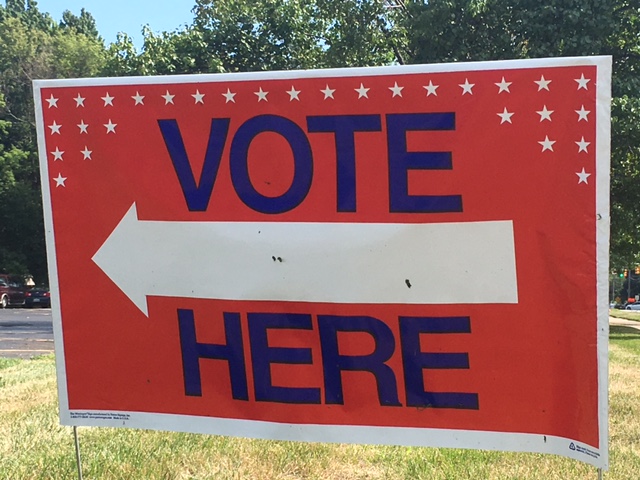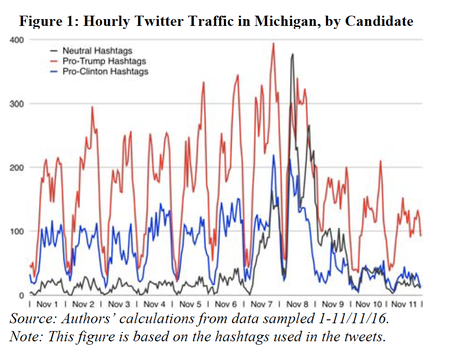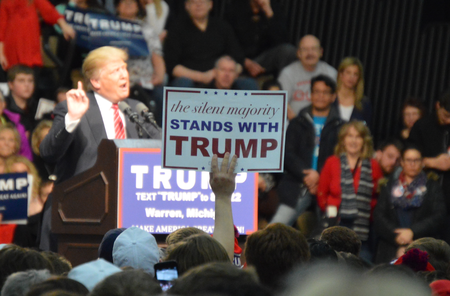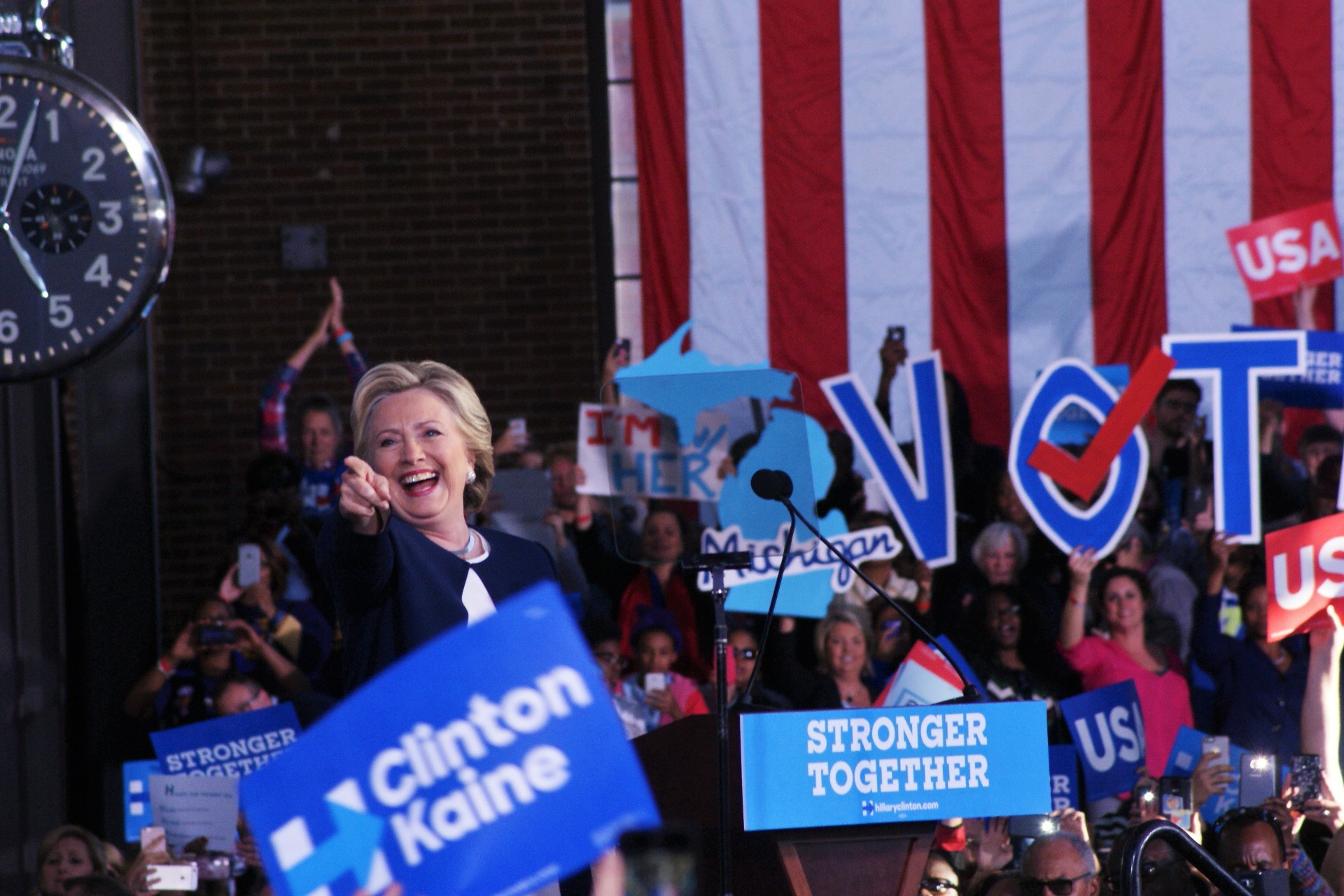‘Fake News’ Political Tweets Targeted Michigan During Presidential Election
Oxford University finds about half of political tweets in Michigan had false info during recent presidential election.

If you were using Twitter in Michigan in the days before, during or after Election Day last year, about half of what showed up in your feed was likely false information.
That is the conclusion of researchers at Britain’s renowned Oxford University.

Officials there say they chose to study Michigan because it was a key political battleground state featuring a tight contest between Donald Trump and Hillary Clinton.
“The amount of junk news and fake news increased. And the day of the election was the day when professional news being shared was at its lowest.” – Oxford University researcher Samantha Bradshaw
The study finds that as the 2016 presidential race reached a climax, Michigan was targeted by tweets promoting more so-called “fake news” items than those coming from legitimate news sources.
Oxford University defined fake news as items that were on the ideological extreme or stories that could easily be proven to be false.

Oxford researcher Samantha Bradshaw says the “fake” tweets eventually began to overwhelm those from professional news sources.
“Leading up to the election the amount of professional news being shared actually decreased while the amount of junk news and fake news increased,” Bradshaw said. “And the day of the election was the day when professional news being shared was at its lowest.”
Bradshaw acknowledges that the study was limited.
It concentrated on well-known political hash tags like #MakeAmericaGreatAgain or #I’mWithHer.

Researchers also focused on tweets from users who identified themselves as being in Michigan.
Some Congressional investigators say Russia may have used so-called “internet bots” to purposely target specific regions of the U.S. with political propaganda, even disguising them as items coming from people who looked and sounded as if they were living in the Midwest.
Oxford’s Samantha Bradshaw tells WDET’s Quinn Klinefelter researchers found the large percentage of “false” tweets surprising.
